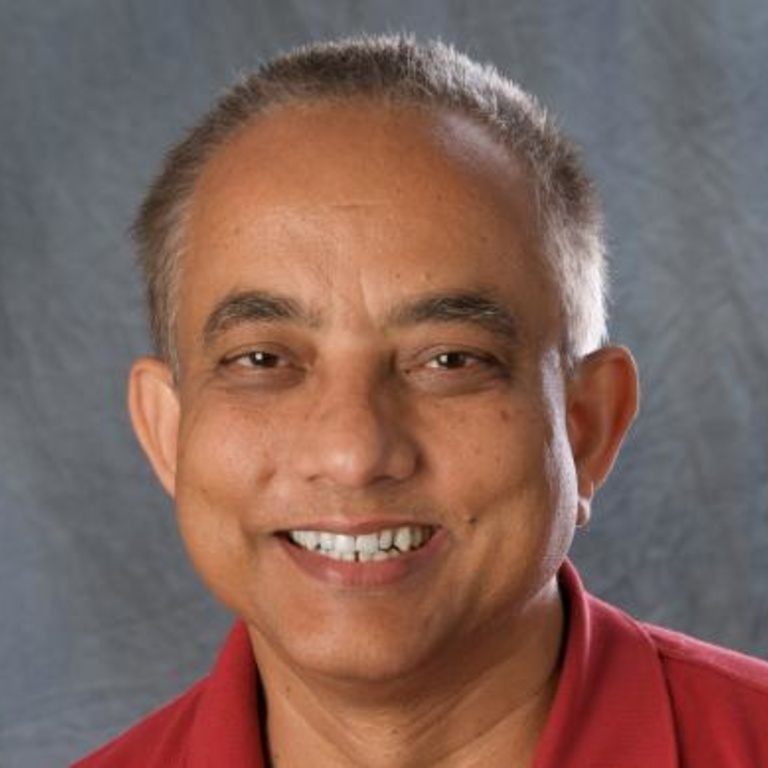Prabhat Goswami, PhD
Research Interests
Dr. Goswami's laboratory is pursuing a mechanistic understanding of the role intracellular oxidation-reduction (redox) state plays in regulating the mammalian cell cycle, and the application of these findings in aging and cancer research as well as in response to “oxidative eustress” and “oxidative distress”. His lab discovered the presence of a redox cycle within the mammalian cell cycle that links cellular metabolism to the progression of cells through the different phases of the cell cycle. His lab also discovered a new mode of cellular aging, “chronological lifespan” which is defined as the duration during which normal cells retained their capacity to re-enter the cell cycle. Recent research efforts focus on understanding the mechanisms that contribute to enhanced proliferation and therapy resistance of cancer cells that are induced by normal cells nearing the end of their chronological lifespan.
Additional research interests include repurposing of FDA-approved drugs for cancer therapy. Our collaborative efforts with the Department of Chemistry include chemical synthesis of mitochondria targeted antimalarial drug, artemisinin selectively to cancer versus normal cells that results in sensitization of cancer cells to standard of care therapy.
Example Publications
(Complete listing of publications on Google Scholar and Pubmed)
- Sarsour et al., Arachidonate 12-Lipoxygenase and 12-Hydroxyeicosatetraenoic acid contribute to stromal aging-induced progression of pancreatic cancer. J Biol Chem. 2020 May 15;295(20):6946-6957. doi: 10.1074/jbc.RA120.012798. PMID: 32265301
- Kalen et al., Hydrogen Peroxide Mediates Artemisinin-Derived C-16 Carba-Dimer-Induced Toxicity of Human Cancer Cells. Antioxidants (Basel), 2020 Jan 26;9(2):108. doi: 10.3390/antiox9020108. PMID: 31991904; PMCID: PMC7070254
- Sarsour et al., Manganese superoxide dismutase activity regulates a metabolic switch during the mammalian cell cycle. Cancer Research 2012, 72:3807-3816. PMID: 22710435 PMCID: PMC3429130.
- Sarsour et al., Redox control of cell cycle in health and disease. Antioxidants & Redox Signaling, 2009, 11(12):2985-3011; PMC:2783918; PMID: 19505186; NIHMS145947
- Menon et al., A redox cycle within the cell cycle: Ring in the old with the new. Oncogene 2007, 26:1101-1109. PMID: 16924237.
- Menon et al., Redox regulation of the G1 to S transition in the mouse embryo fibroblast cell cycle. Cancer Research 2003, 63:2109-2117. PMID: 12727827.
- Carroll RS, Du J, O'Leary BR, Steers G, Goswami PC, Buettner GR, Cullen JJ. Pharmacological ascorbate induces sustained mitochondrial dysfunction. Free Radic Biol Med. 2023 Aug 1;204:108-117. doi: 10.1016/j.freeradbiomed.2023.04.023. Epub 2023 May 1. PMID: 37137343; PMCID: PMC10375417.
- Du J, Pope AN, O'Leary BR, Wagner BA, Goswami PC, Buettner GR, Cullen JJ. The role of mitochondria in pharmacological ascorbate-induced toxicity. Sci Rep. 2022 Dec 29;12(1):22521. doi: 10.1038/s41598-022-27185-9. PMID: 36581766; PMCID: PMC9800562.
- Varmazyad M, Modi MM, Kalen AL, Sarsour EH, Wagner B, Du J, Schultz MK, Buettner GR, Pigge FC, Goswami PC. N-alkyl triphenylvinylpyridinium conjugated dihydroartemisinin perturbs mitochondrial functions resulting in enhanced cancer versus normal cell toxicity. Free Radic Biol Med. 2021 Mar;165:421-434. doi: 10.1016/j.freeradbiomed.2021.01.050. Epub 2021 Feb 6. PMID: 33561488; PMCID: PMC8020572.
Education
- 1983 PhD, Chemistry, Gauhati University, India
- 1976 MS, Chemistry, Gauhati University, India
- 1974 BS with honors, Chemistry, St. Anthony's College, Shillong, India
Post-Graduate Education
- 1978-1983 Pre-doctoral Fellow, Regional Research Laboratory, Jorhat, India
1990-1992 Research Associate Radiation Oncology Center, Washington University School of Medicine, St. Louis, Missouri
Carver College of Medicine profile
- Primary Faculty
